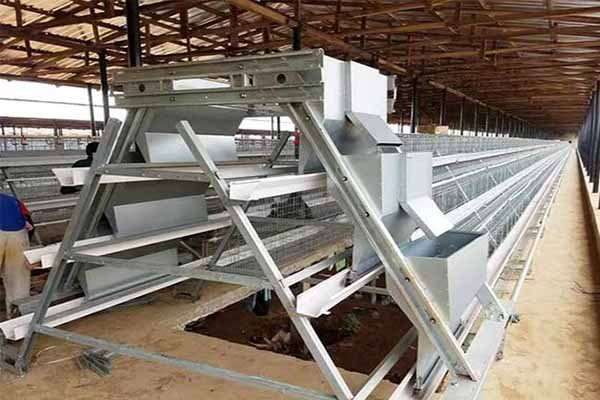Optimizing Poultry Farm Productivity with Layer Poultry Cages in Kenya
Understanding the Demand for Layer Poultry Cages in Commercial Farms in Kenya
In Kenya, the poultry industry has seen significant growth over the past decade. As one of the leading producers of poultry in Africa, the country has a promising future in commercial poultry farming. Among the various aspects that contribute to this growth, the use of efficient layer poultry cages has emerged as a critical factor.
According to recent statistics, the Kenyan poultry market has been growing at an annual rate of 5-6%. This growth has been driven by a growing demand for poultry meat and eggs, as well as an increasing consumer preference for better quality and healthier food options.
Layer poultry cages have played a pivotal role in this growth. These cages are designed to optimize the productivity of layer hens, ensuring that they can lay eggs efficiently while also maintaining their overall health and comfort.
Benefits of Layer Poultry Cages for Commercial Farms in Kenya
Layer poultry cages offer several advantages to commercial farms in Kenya:
– Healthier Hens: Cages provide a controlled environment that reduces the risk of disease and injury. The structured space prevents hens from picking on each other and maintains a clean, hygienic environment.
– Increased Productivity: Cages are designed to maximize egg production. Hens are more likely to lay eggs when they are comfortable and healthy, which can increase the number of eggs produced by each hen.
– Efficient Use of Space: Layer poultry cages are space-efficient, allowing farmers to maximize their land use while accommodating a larger number of hens.
– Ease of Management: Cages are easy to clean and maintain, reducing the time and effort required for farm management.
Choosing the Right Layer Poultry Cages for Your Farm
When selecting layer poultry cages for your commercial farm in Kenya, it’s essential to consider several factors:
– Quality: Ensure that the cages are made of high-quality materials to ensure durability and longevity.
– Size: The size of the cages should be appropriate for the number of hens you plan to house. Generally, a cage should be about 18 square feet.
– Ventilation: Good ventilation is crucial to prevent heat stress and maintain air quality. Ensure that the cages you choose have sufficient ventilation.
– Feeding and Drinking Systems: Easy-to-use feeding and drinking systems can help increase efficiency and reduce feed waste.
Conclusion
Investing in high-quality layer poultry cages is a smart decision for any commercial farmer in Kenya. These cages can help increase productivity, reduce labor costs, and provide a healthier environment for your hens.
To help you get started, Livi Machinery offers free poultry farm design plans and equipment quotes. Contact us today to learn more and take the first step towards optimizing your poultry farm.





